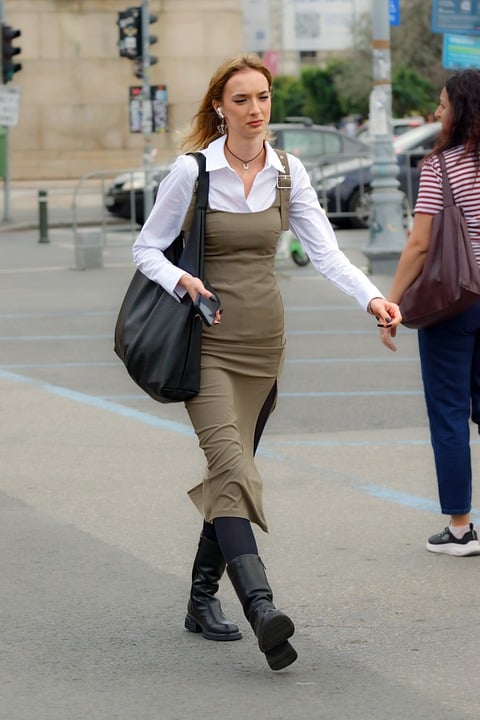10 Simple Swaps for a More Sustainable Home
Why Sustainability Matters
As we go about our daily lives, we typically don’t think about the impact our choices have on the environment. However, every day, we have the power to make sustainable choices that can significantly reduce our carbon footprint. One of the best ways to do this is by making simple swaps around the home. By swapping out non-sustainable options for eco-friendly alternatives, we can reduce waste, conserve resources, and live more responsibly.
In this article, we’ll explore 10 simple swaps you can make in your home today to start living more sustainably.
Swap 1: LED Lighting for Incandescent Bulbs
One of the simplest and most effective ways to start reducing your energy consumption is to swap out traditional incandescent bulbs for LED lighting. LED bulbs use up to 90% less energy than old-school bulbs and can last up to 25 times longer. Plus, they’re free of toxic chemicals like mercury and lead.
Swap 2: Reusable Beeswax Wraps for Plastic Wrap
When it comes to food prep, plastic wrap is often the go-to choice. But did you know that beeswax wraps are a game-changer? Not only are they reusable, but they’re also biodegradable and compostable. You can use them to wrap snacks, cover leftovers, and even pack lunches for work or school.
Swap 3: Cloth Towels for Paper Towels
Paper towels are a convenient option, but they’re also a major contributor to waste and deforestation. Opt for reusable cloth towels instead. Not only will you reduce your waste, but you’ll also be using a reusable product that can be washed and reused multiple times.
Swap 4: Glass Bottles for Plastic Water Bottles
Staying hydrated is essential, but single-use plastic water bottles are a major contributor to waste. Switch to glass bottles instead. Not only are they eco-friendly, but they’re also non-toxic and can be used again and again.
Swap 5: Bamboo Toothbrushes for Plastic Brushes
Toothbrushes are a necessity, but the plastic waste they produce is anything but necessary. Swap to bamboo toothbrushes instead. They’re biodegradable, compostable, and gentle on teeth and gums.
Swap 6: Reusable Coffee Filters for Paper Filters
From coffee shop to home, paper filters are often used and tossed without a thought. But did you know that reusable coffee filters exist? Not only will you reduce waste, but you’ll also save money and enjoy a stronger, more flavorful brew.
Swap 7: Charcoal Cartridges for Traditional Air Fresheners
Traditional air fresheners are filled with toxic chemicals that can harm our bodies and the environment. Opt for charcoal cartridges instead. They’re a natural, odor-absorbing alternative that won’t harm the air or your home.
Swap 8: Castile Soap for Harsh Chemical Cleaners
When it comes to cleaning, harsh chemicals are often the go-to choice. But did you know that castile soap can get the job done just as well? With its natural antibacterial and antiviral properties, castile soap is a gentle, non-toxic alternative that’s better for you and the environment.
Swap 9: Reusable Storage Containers for Single-Use Pouches
From food to toys, single-use pouches are everywhere. But did you know that reusable storage containers are a better option? Not only will you reduce waste, but you’ll also have a convenient, reusable container for snacks, lunches, and more.
Swap 10: Bamboo Straws for Plastic Straws
With the straws ban in full swing, it’s never been more important to opt for eco-friendly alternatives. Bamboo straws are a game-changer. They’re biodegradable, compostable, and can be used again and again.
Conclusion
Making the switch to eco-friendly alternatives may seem daunting, but it’s easier than you think. By incorporating these simple swaps into your daily routine, you’ll be reducing waste, conserving resources, and living more responsibly. Remember, every small change counts, and with these swaps, you’ll be on your way to a more sustainable home.
Frequently Asked Questions
Q: What is the most effective way to reduce my carbon footprint?
A: Start by reducing energy consumption, conserving water, and reducing waste.
Q: What are some easy ways to reduce plastic use?
A: Start by switching to reusable products like bamboo straws, refillable water bottles, and cloth towels.
Q: What are some natural alternatives to harsh chemicals?
A: Opt for castile soap, essential oils, and natural cleaning products.
Q: How can I further reduce my waste?
A: Reduce, Reuse, Recycle. Choose reusable products, repurpose items, and recycle whenever possible.
Q: Why is sustainability important?
A: Sustainability is crucial for the health of our planet and future generations. By making responsible choices, we can conserve resources, reduce waste, and preserve the environment.
By incorporating these simple swaps into your daily routine, you’ll be well on your way to a more sustainable home. Remember, every small change counts, and with these swaps, you’ll be making a difference today.


